On September 22, in Ho Chi Minh City, the Vietnam Banking Association (VNBA) and the Vietnam Blockchain Association jointly organized a conference on "Regulations on anti-money laundering and the role of anti-money laundering in cryptocurrency transactions".
Mr. Nguyen Quoc Hung, Vice Chairman and General Secretary of VNBA, said that the Law on Anti-Money Laundering was passed by the National Assembly and took effect from March 2023. Immediately after that, the Government and the State Bank issued regulations to implement and guide the implementation of a number of articles of the Law on Anti-Money Laundering, with many contents suitable for practice.
Mr. Nguyen Quoc Hung also warned that in the context of increasingly deep integration, along with the explosion of information technology, in addition to the achievements, we must face many forms, methods, and tricks of criminals to carry out money laundering that are increasingly sophisticated and complicated, especially in the field of digital currency and virtual currency, where the legal corridor is not yet fully completed.
In particular, Vietnam has recently been included in the gray list of countries that need to strengthen anti-money laundering (AML). This is a list of countries that need to be closely monitored by the Financial Action Task Force (FATF) on anti-money laundering, including 20 countries. FATF said that it will work to ensure the independence of agencies responsible for investigating financial crimes, managing digital assets and enhancing international cooperation against money laundering. Therefore, it can be said that preventing and combating money laundering in the cryptocurrency sector is one of the urgent tasks for management agencies in Vietnam at the present time.
Deputy Director of the Anti-Money Laundering Department Nguyen Thi Minh Tho said that money laundering risk assessment is one of the key points in Circular 09. Anti-money laundering and risk assessment are not new issues because regulations on this issue have been included in Circular 20/2019/TT-NHNN and implemented by banks. Accordingly, payment intermediaries, banks, and financial companies - key entities under the management of the State Bank - have conducted money laundering risk assessments at the organization. However, Circular 20 has not provided any specific scales or requirements or instructions. Therefore, Circular 09 was issued in the context of setting mandatory and specific requirements in the process of inspection, supervision, management and guidance for reporting entities. Especially for reporting entities that are new to anti-money laundering work or those in fields, industries and professions that do not have more access to international regulations and standards.
Regarding the risk of money laundering, Mr. Tran Viet Hung, Advisor to the Vietnam Blockchain Association, said that the development of the blockchain technology industry has opened a new era of technology, applied in many fields. However, this strong growth not only brings special economic and social benefits but also creates invisible problems and challenges in management, especially for cross-border money laundering activities. A recent report by BCG shows that it is estimated that crypto assets will reach 16,000 billion USD by 2030, equivalent to 10% of global GDP.
When blockchain technology was born, it brought with it the risk of increasing financial crimes and money laundering using high technology in a more sophisticated way. In Vietnam, due to the lack of a specific legal framework, at the same time, the source of high-quality human resources participating in the management and control of cryptocurrencies and digital assets, on a general level, is still very limited.
Mr. Phan Duc Trung, Permanent Vice President of the Vietnam Blockchain Association, said that cryptocurrency is a field without clear legal regulations in Vietnam, but the actual transaction volume ranks 15th in the world and the level of cryptocurrency acceptance ranks first in the world.
According to data from Chainalysis recently shared by the US Department of Justice in a training program at the Supreme People's Court of Vietnam in late August 2023, the total value of cryptocurrencies received by Vietnam in the period from October 2021 to October 2022 was 90.8 billion USD. Of which, illegal activities were 956 million USD.
Mr. Phan Duc Trung said that, in terms of internet access address, the most used platform for cryptocurrency trading by users in Vietnam is the Binance.com exchange with nearly 42 million visits within 1 year from October 2021 to October 2022. The second platform is the exchange called Exness.com, with 21.89 million visits in the same period.
To enhance the effectiveness of anti-money laundering activities through cryptocurrencies in particular and digital assets in general, the Vietnam Blockchain Association recommends that financial institutions need to identify digital asset transactions, build processes and prepare good human resources. As for identifying digital asset transactions as a type of asset recognized by the Vietnamese Civil Code.
While there are no specific legal documents on cryptocurrencies, credit institutions need to identify and learn how to classify these assets according to international accounting rules and standards...
Financial institutions should develop procedures and compliance controls for anti-money laundering activities related to crypto assets for individual accounts. In addition, it is necessary to prepare high-quality human resources based on the principle of full convergence of economic, technological and legal fields./.
Source link



![[Photo] Prime Minister Pham Minh Chinh receives leaders of Excelerate Energy Group](https://vphoto.vietnam.vn/thumb/1200x675/vietnam/resource/IMAGE/2025/5/29/c1fbe073230443d0a5aae0bc264d07fe)



![[Photo] Prime Minister Pham Minh Chinh attends the event "Digital transformation of the banking industry by 2025"](https://vphoto.vietnam.vn/thumb/1200x675/vietnam/resource/IMAGE/2025/5/29/0e34cc7261d74e26b7f87cadff763eae)







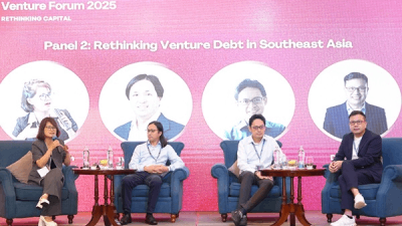






































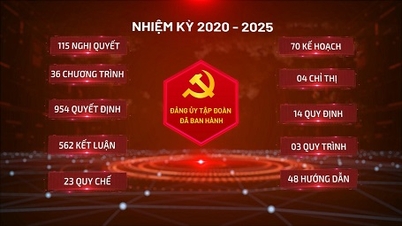


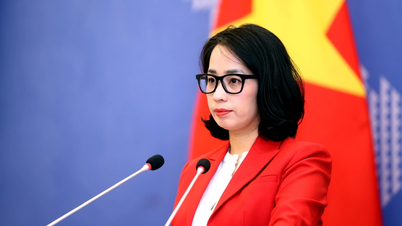










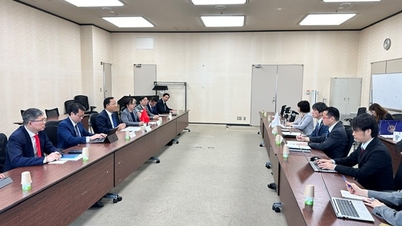



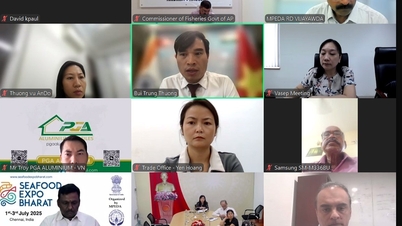












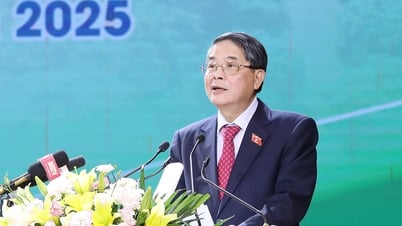










Comment (0)